Program support: Indra Melessen
Contact: aph.personalizedmedicine@amsterdamumc.nl
We aim to increase attention to the cultural, ethnic, socio-economic, gender, genetic and psychological diversity in the population
Mission and goals
The Personalized Medicine research program aims to increase attention to the cultural, ethnic, socio-economic, gender, genetic and psychological diversity in the population and to people’s social identities.
With the combination of ongoing (bio-)technological developments and the perceived need for person-centered decision-making, medicine has now arrived in an era where more customization is both needed and possible. Personal genomes, information on subtypes of diseases, and individual characteristics and preferences can guide stratification and personalization in healthcare.
In the future we can fine-tune the healthcare system, especially in primary care and public health, offering stratified approaches wherever possible, and personalizing where needed, while normative (ethical and legal) aspects will be addressed.
Program leaders
Research themes
Mapping Diversity in Healthcare Needs
We will study diversity in (future) healthcare clients, at different levels (personal, interpersonal, institutional, and societal) and in different settings, and analyze the relevance for health, prevention, and healthcare.
Risk Profiling
We will study risk profiling, classifying and stratifying patients and other clients, to predict benefit or harm from diagnostics and interventions (including pharmacogenomics and population screening programs).
Stratified Interventions
With research partners within the Amsterdam academic alliance, we will systematically develop, implement, and evaluate guidelines and interventions that build on and effectively respond to biological and social axes of diversity, including genetic factors and intersectionality.
Training for Diversity
We will contribute to how future healthcare professionals can be better trained to be receptive and effective to differences in patient diversity, presentation, needs, and goals, for example by improving care providers’ skills in Shared Decision Making.
Special Interest Groups
In 2022 the Personalized medicine program has started with Special Interest Groups, aiming to stimulate collaboration on three specific topics: Patient centered care, Innovation and impact in personalized medicine and Diversity in health & care research.
Patient centered care
From the patient's perspective we aim to connect researchers who are concerned with the development and implementation of measures, care models and research methodologies tailored towards the individual patient (patient reported outcomes, shared decision making).
Innovation and impact in personalized medicine
To achieve true impact with innovations in Personalized Medicine, timely research is needed to ensure their effectiveness and acceptability. This includes valorization of prediction models and other tools for precision medicine, the study of ethical values, legal frameworks and analyzing the potential consequences for existing paradigms in (public health) care.
Within the Personalized Medicine research program we stimulate the interdisciplinary study of the impact of new technologies and other developments, including ethical, legal and social issues, in order to set the right frameworks for responsible innovation and to ultimately optimize impact.
Diversity in health & care research
The SIG ‘diversity in health & care research’ aims to connect researchers working on inclusive research and to make knowledge on inclusivity and diversity in research available for the APH community. We will do so by developing a chapter for the APH Quality Handbook with guidelines for inclusive research (both qualitative and quantitative methods), and by providing an overview on emerging Toolkits on the subject (such as e-learnings).
This SIG aims to collaborate across programs, for instance by working together with QoC’s SIG: “Creating awareness for boundaries related to vulnerable people” and the ‘inclusive research initiative’ within the Amsterdam Prevention Network.
Senior program council
The program leaders of the Personalized medicine research program chair the PM Senior program council. This senior program council consist of a selection of senior researchers of the research program who meet regularly to implement or update the research program-specific strategy and to discuss anticipatory or reactive response to external events.
| Senior program council members | |
|---|---|
| Wonu Akingbuwa | Marieke Bak |
| Susanne Vijverberg | Marieke Blom |
| Agnies van Eeghen | Irene van Valkengoed |
Junior program council
The Personalized Medicine research program has installed a PM Junior program council that provides program leaders with solicited and unsolicited advice and helps them with the organization of research program-specific activities or events.
| Junior program council members | |
|---|---|
| Menno Maris | Dennis Klose |
| Esther Bührman | Vaishnavi Kalayanapuram Madhavan |
Research program members
-
 Abdullah Khawar
Abdullah Khawar -
Adrian Logiantara
-
 Agnies van EeghenPI DR.
Agnies van EeghenPI DR. -
Alannah Hijlkema
-
Aldo JongejanPhD
-
 Alexandra Starr
Alexandra Starr -
 Alicia UijlPI
Alicia UijlPI -
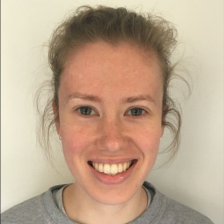 Aline Westendorp
Aline Westendorp -
Allerdien VisserING.
-
 AM Kleiboer
AM Kleiboer -
 Anastasia Goula
Anastasia Goula -
Andreas MeißnerDR.
-
Anil Ori
-
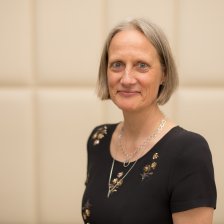 Ank de JongePI PROF.DR. dr.
Ank de JongePI PROF.DR. dr. -
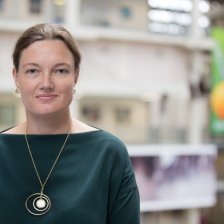 Anke Maitland - van der ZeePI Prof. PhD
Anke Maitland - van der ZeePI Prof. PhD -
 Anna-Lea van Ooijen
Anna-Lea van Ooijen -
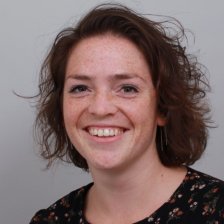 Anne Geijsen
Anne Geijsen -
Anneke Kleeven
-
Annelieke MüllerDR.
-
Anneloes Rube
-
 Annemarie Reilingh
Annemarie Reilingh -
 Anouk den BraberDR.
Anouk den BraberDR. -
Anouk Groenewegen
-
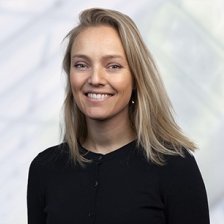 Anouk SchranteePI DR.
Anouk SchranteePI DR. -
 Antoine van KampenPI PROF.DR.
Antoine van KampenPI PROF.DR. -
Arthur Kievit
-
 Atze Bellaar
Atze Bellaar -
 Balapuwaduge Isuru Layan Madusanka Mendis
Balapuwaduge Isuru Layan Madusanka Mendis -
Barbara MulderPROF.DR.
-
 Barbera van Schaik
Barbera van Schaik -
Bas van Ooij
-
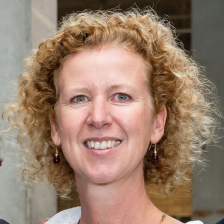 Baudewijntje KreukelsPI PROF.DR.
Baudewijntje KreukelsPI PROF.DR. -
 Ben De BockMA
Ben De BockMA -
Berber KapiteinDR.
-
Bert-Jan van den BornPI PROF.DR.
-
 Bettine van Willigen
Bettine van Willigen -
 Bibiche den Hollander
Bibiche den Hollander -
Bodi HuismanMSC.
-
Bouchra Koullali
-
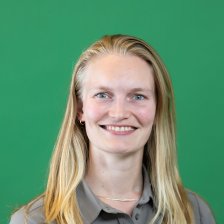 Brecht Haakma
Brecht Haakma -
 Bryn Hummel
Bryn Hummel -
 Carla van ElDR.
Carla van ElDR. -
Casper Martens
-
 Charles AgyemangPI Prof. PhD
Charles AgyemangPI Prof. PhD -
Charlotte Jansen
-
Charlotte LameijerDR.
-
Charlotte van Dijk
-
Cheima Bouziane
-
 Chris van Klaveren
Chris van Klaveren -
 Corrette PloemPI PhD
Corrette PloemPI PhD -
 Costa BachasDR.IR. PhD
Costa BachasDR.IR. PhD -
Danae Mitsea
-
Daniël van den Kroonenberg
-
 Danielle Koornneef
Danielle Koornneef -
 Danielle TimmermansPI PROF.DR. Professor in Public Health Risk Communication
Danielle TimmermansPI PROF.DR. Professor in Public Health Risk Communication -
 Danny BruinsMaster of Science
Danny BruinsMaster of Science -
 Daphne Boucherie
Daphne Boucherie -
 Denise van der Mee
Denise van der Mee -
 Denise VeeloPI PROF.
Denise VeeloPI PROF. -
 Dennis Klose
Dennis Klose -
Derk WillemsPI PROF.DR.
-
 Dirk Pelt
Dirk Pelt -
 Dirk UbbinkPI DR.
Dirk UbbinkPI DR. -
Eco de GeusPROF.DR.
-
Eda Sert
-
 Eline Kho
Eline Kho -
 Eline Vansina
Eline Vansina -
Ellen SmetsPI PROF.
-
Elsbeth van Wees-JansenDRS.
-
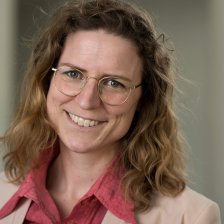 Elsje van Bergen
Elsje van Bergen -
 Eric Moll van CharantePI Prof. MD PhD
Eric Moll van CharantePI Prof. MD PhD -
Erik Kemper
-
Esmée van Zon
-
Esmée van Zon
-
 Esra Pirgon
Esra Pirgon -
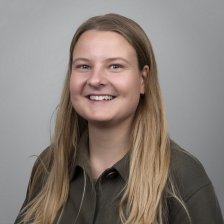 Esther BührmanMSc MA
Esther BührmanMSc MA -
 Eva Aalbregt
Eva Aalbregt -
 Eva CohenMD
Eva CohenMD -
 Eva Meier
Eva Meier -
Eva PajkrtPI PROF.DR.
-
Evert Karregat
-
Ezra Oosthoek
-
Fabienne Stubenrouch
-
Femke de Jong
-
Fiorella Huijgens
-
Florentine Bennebroek Evertsz
-
 Fred VazPI PhD
Fred VazPI PhD -
Frédérique de Rooy
-
Gayle van der Kraaij
-
 Gerben ter RietPI DR.
Gerben ter RietPI DR. -
 Ginger Beau Langbroek
Ginger Beau Langbroek -
Glenn Dumont
-
 Gowri GopalakrishnaDR.
Gowri GopalakrishnaDR. -
Guido KamphuisDRS.
-
Henk van WeertDR.
-
 Hugo Klarenberg
Hugo Klarenberg -
Idserd Klop
-
Ilaria Jansen
-
Ilse Kolmans
-
 Ilse Meijer
Ilse Meijer -
 Ilse Zaal - Schuller
Ilse Zaal - Schuller -
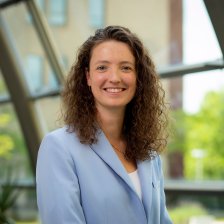 Iméze Hieltjes
Iméze Hieltjes -
Indra Melessen
-
 Inge HenselmansPI PhD
Inge HenselmansPI PhD -
Inge van Eekeren
-
 Inge Van Strien-KnippenbergDRS.
Inge Van Strien-KnippenbergDRS. -
Iris de Brouwer
-
 Irma Verdonck-de LeeuwPI PROF.DR.
Irma Verdonck-de LeeuwPI PROF.DR. -
Isabelle Flierman
-
Isabelle van der Meulen
-
 Ivo Lutke Schipholt
Ivo Lutke Schipholt -
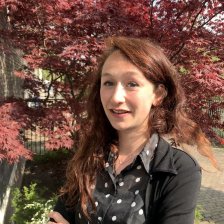 Ivy van DijkeMSC.
Ivy van DijkeMSC. -
Jaap AkkerdaasPhD
-
Jan van Klinken
-
Jantine Stam
-
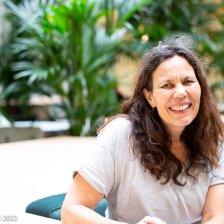 Jeanine SuurmondPI PhD
Jeanine SuurmondPI PhD -
 Jeannette PolsPI prof. dr.
Jeannette PolsPI prof. dr. -
Jelle de Jong
-
 Jelle HimmelreichMSc
Jelle HimmelreichMSc -
 Jenny van Dongen
Jenny van Dongen -
Jeroen Doodeman
-
Jessy Joy van KleefMSc
-
jim Wiegel
-
Johannes LegemaatePI PROF.
-
Jonathan Melger
-
 Joost Gulpen
Joost Gulpen -
 Jorrit van Poelgeest
Jorrit van Poelgeest -
Jos BramerDR.
-
 Josefina Benita Bernardo
Josefina Benita Bernardo -
 Joshua van Apeldoorn
Joshua van Apeldoorn -
Joyce BaardDR.
-
Judith Horenblas
-
Judith RikkenDR.
-
Karline van de Kamp
-
 Karuna van der MeijPhD
Karuna van der MeijPhD -
Kasper KruithofMSC.
-
Kevin Moody
-
Kim Brand
-
Kim OostromDR.
-
 Kristel van AsseltPI PhD
Kristel van AsseltPI PhD -
Kyra Mendes de Leon
-
Lannie Ligthart
-
Lara Gerbrandy - Schreuders
-
Laurian JongejanPhD
-
Leo ten KatePROF.DR.
-
Leonie VisserDR.
-
 Lianne de Vries
Lianne de Vries -
Lieke Noij
-
Lieke Swart
-
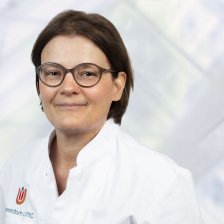 Liesbeth RenemanPI PROF.DR.
Liesbeth RenemanPI PROF.DR. -
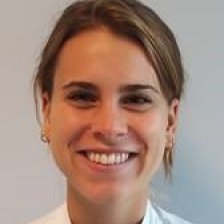 Lieve Anne WillemsenDrs.
Lieve Anne WillemsenDrs. -
Lilach Regev
-
Lilach Regev-Epstein
-
Linda BonnieMSc
-
Lisa Stikvoort
-
 Lisa-Maria van KlaverenMSC.
Lisa-Maria van KlaverenMSC. -
Lizan Bloemsma
-
Lizet Brenkman
-
 Loes Lindiwe KreeftenbergMSC.
Loes Lindiwe KreeftenbergMSC. -
Lois van de Water
-
Lonneke van VughtDR.
-
Louis HandokoPI DR.
-
Louise GerbensDR.
-
Lukas de Clercq
-
Maartje HoogsteynsDR.
-
Machteld Boonstra
-
Madelief Kuijper
-
 Madelon van WelyPI PhD
Madelon van WelyPI PhD -
Mahmoud IbrahimMSc
-
Maik Derksen
-
 Marc van der ValkPI PhD DR.
Marc van der ValkPI PhD DR. -
Mareen DatemaDR.
-
 Margot MorssinkhofMSC.
Margot MorssinkhofMSC. -
 Margot van de Weijer
Margot van de Weijer -
Marianne SnijdewindMSC.
-
 Marieke Bak
Marieke Bak -
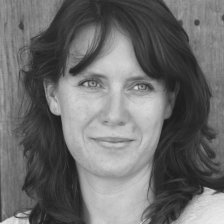 Marieke BlomPI PhD
Marieke BlomPI PhD -
 Marijn Eversdijk
Marijn Eversdijk -
 Mariska LeeflangPI PROF.DR.
Mariska LeeflangPI PROF.DR. -
Marthe Mansour
-
Martijn HeijmansPI DR.
-
Martijn OttenMSC.
-
 Martin Gevonden
Martin Gevonden -
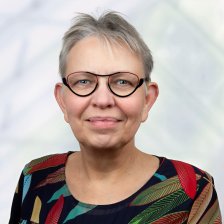 Martina CornelPI PROF.DR.
Martina CornelPI PROF.DR. -
 Mathilde VerdamPhD
Mathilde VerdamPhD -
Matthias SchafrothDR.
-
Maud van Zijl
-
 Maurice AaldersPI PROF.DR.
Maurice AaldersPI PROF.DR. -
Mechteld VisserDR.
-
 Meike Bartels
Meike Bartels -
Menno Maris
-
Merel Cornelissen
-
Merel StorMD
-
 Michelle Jansen
Michelle Jansen -
Michiel WinterPI DR.
-
Miranda Houtman
-
Mirjam de VosPhD
-
 Mirjam GeerlingsPI
Mirjam GeerlingsPI -
 Mirthe Klein Haneveld
Mirthe Klein Haneveld -
Mitra Nekouei Shahraki
-
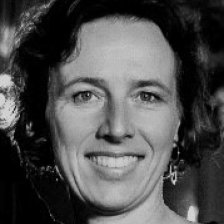 Monika HollanderPI DR.
Monika HollanderPI DR. -
Myrle Stouten-KempermanMSc
-
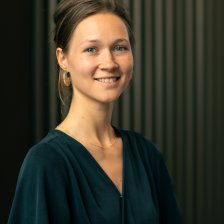 Nadia van Silfhout
Nadia van Silfhout -
 Natalia Azcona Granada
Natalia Azcona Granada -
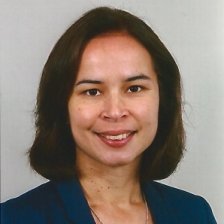 Natasja van SchoorPI DR.
Natasja van SchoorPI DR. -
Nathanja van Moppes
-
Nick van Reijen
-
Niki MedendorpMSc
-
 Nimrat GrewalPI DR.
Nimrat GrewalPI DR. -
 Noa van der Plas
Noa van der Plas -
Nourhan ElzafaranyDR.
-
 Olga DammanPI DR.
Olga DammanPI DR. -
Otto Nyberg
-
Pascal Smulders
-
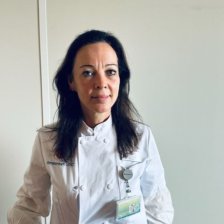 Patricia ZondervanPI DR.
Patricia ZondervanPI DR. -
 Patrick BossuytPI PROF.DR.
Patrick BossuytPI PROF.DR. -
 Paul BrinkmanPI DR.IR.
Paul BrinkmanPI DR.IR. -
Paul ElbersPI DR.
-
 Perry MoerlandDR.IR.
Perry MoerlandDR.IR. -
 Peter HarmsPhD
Peter HarmsPhD -
Peter StruijsDR.
-
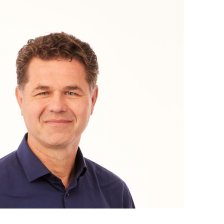 Pierre BetDR.
Pierre BetDR. -
 Pieter van der VeereMSC.
Pieter van der VeereMSC. -
 Pythia NieuwkerkPI PhD
Pythia NieuwkerkPI PhD -
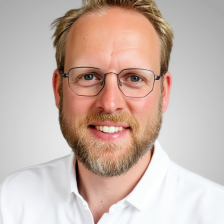 Ralf HarskampPI DR.
Ralf HarskampPI DR. -
 René Pool
René Pool -
Ricardo Wijngaarde
-
Riëtta Oberink
-
Rik van EekelenDR.
-
Rob van Kollenburg
-
 Rodrigo Garcia Valiente
Rodrigo Garcia Valiente -
Roeland Kleipool
-
Rogier Gerards
-
Ronald van ReePI PROF.DR.
-
 Roosmarie Jessen
Roosmarie Jessen -
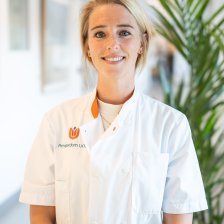 Roza Opperman
Roza Opperman -
Ruben Zwiers
-
Ruochen Wang
-
 Rutger-Jan SwijnenburgPI DR.
Rutger-Jan SwijnenburgPI DR. -
Sanja KezicPI PhD
-
Sanne Maat
-
Sarah de Bever
-
Sarah Mugge
-
Sarah van den Berg
-
Saskia BoomMSc
-
 Selina Limmen
Selina Limmen -
Serge Versteeg
-
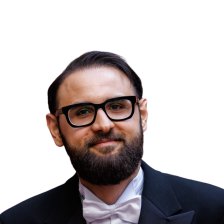 Shahriyar Shahbazi Khamas
Shahriyar Shahbazi Khamas -
Sigsten Stieglitz
-
 Siham Azahaf
Siham Azahaf -
 Silva Harmsen
Silva Harmsen -
Sjoerd Nota
-
Sjoerd ReppingPI PROF.
-
Sonja van Scheijen
-
Sophie Horbach
-
Stefania Principe
-
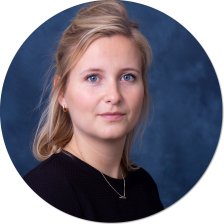 Stéphanie van der BurgtDR.
Stéphanie van der BurgtDR. -
Steven Uittenbogaart
-
Sunny NijbroekMD
-
Susanne VijverbergPI MSc PhD
-
 Suzanna OnstwedderMSC. Biomedical Sciences
Suzanna OnstwedderMSC. Biomedical Sciences -
Tamar SmuldersBSc
-
Tanja de Rijke
-
Tanja de Rijke
-
Taryn Vosters
-
Tessa Brik
-
 Tessel RigterPI DR.
Tessel RigterPI DR. -
 Theo de ReijkePI DR.
Theo de ReijkePI DR. -
Tijn van Winden
-
Tobias Rinke de WitPI DR.
-
Tom Oirbans
-
Tom Steenbergen
-
Tom Vermeulen
-
 Tsvetan Yordanov
Tsvetan Yordanov -
Vaishnavi Kalyanapuram Madhavan
-
 Valentina Navarro Ovando
Valentina Navarro Ovando -
 Wendy den ElzenPI DR.
Wendy den ElzenPI DR. -
 Wenneke van WeeldenDRS.
Wenneke van WeeldenDRS. -
 Wiesje van der FlierPI PROF.DR.
Wiesje van der FlierPI PROF.DR. -
Willemijn Klein Swormink
-
Wim LucassenMD PhD
-
 Wonuola Akingbuwa
Wonuola Akingbuwa -
 Yasaman Vali
Yasaman Vali -
Yasmin PolakMSc
-
Yolanda de Wit - van Wijck
-
Youri Schut
-
Yousif DawoodMSC.
-
Zarah van der Pal



